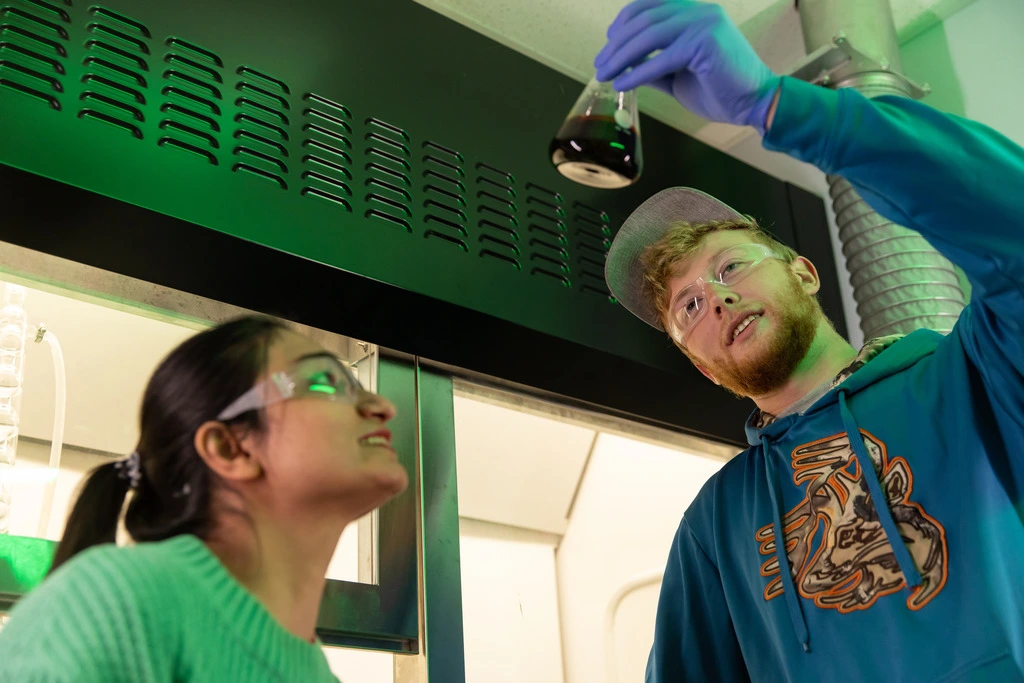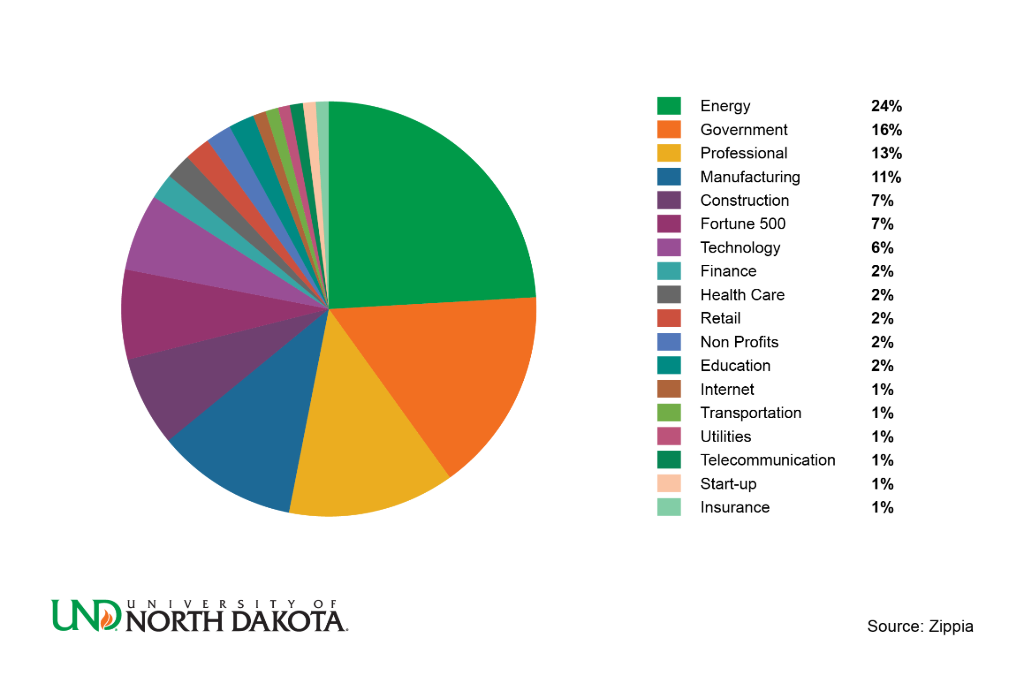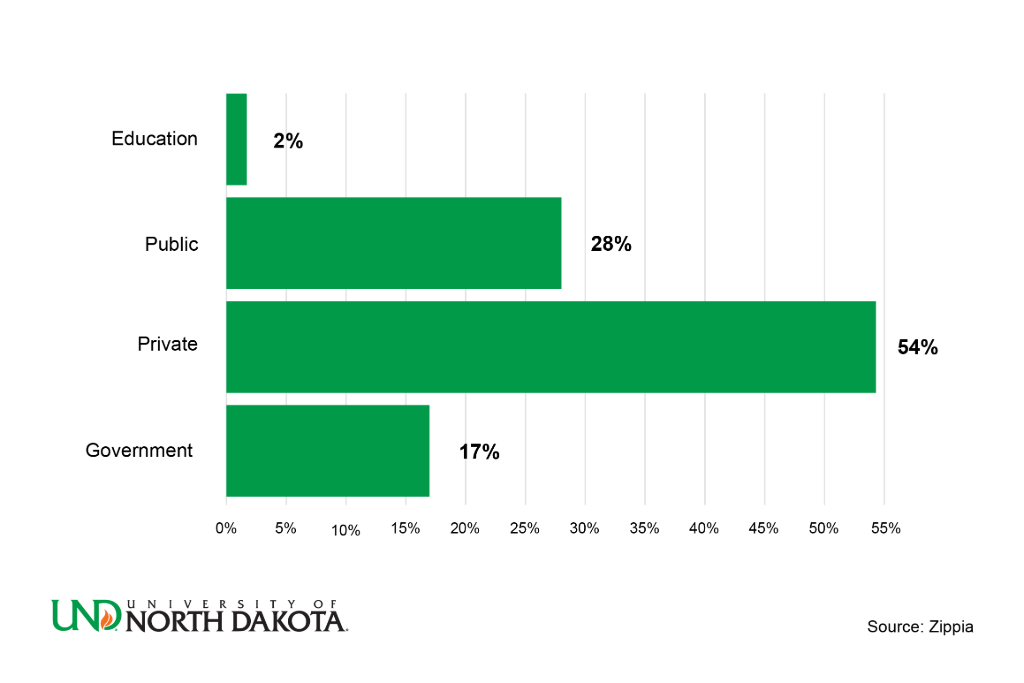
What Does a Geologist Do?
A geologist studies the Earth's composition, processes, and history.
Request Information
They use this knowledge to locate natural resources, assess environmental impacts, and contribute to public safety.
As Henry David Thoreau, a philosopher, poet, and environmental scientist, eloquently put it, the Earth is not merely a record of the past, preserved in strata like pages of an ancient book. Instead, it is a living, evolving presence—"living poetry," as he describes it—where every geological feature is a product of the planet's ongoing life force. For geologists, the Earth is not just an artifact to be studied but an ever-changing entity that continues to shape and inspire.
Such a perspective naturally leads to the question: What does a geologist do? For those curious about how geologists interact with our planet, let's go through the many aspects of their role.
What Do Geologists Do?
Geologists are often seen as scientists who study layers of rock and soil, but this perception only scratches the surface. Their work, in fact, is about understanding the Earth as a living, breathing entity. They study its structure, processes, and history.
These professionals are essential to scientific research and real-world applications in a wide range of businesses, whether they are finding lucrative resources, evaluating the impact they have on the environment, or reducing the effects of natural disasters.
Their role is as varied as the Earth itself, involving a range of operations from doing fieldwork to analyzing samples in labs and conducting in-depth research, among other things.
Mapping and Fieldwork
Stephen Jay Gould, a paleontologist, evolutionary biologist, and science writer, wisely noted that "no geologist worth anything is permanently bound to a desk or laboratory." He pointed out that true scientific creativity emerges from the interaction and synthesis of various experiences, including fieldwork.
Therefore, one of the primary tasks of a geologist is conducting mapping and fieldwork. This involves venturing into the field to collect data, observe geological formations, and take samples. It's through this hands-on work that geologists connect most with the Earth, often working in remote or challenging environments.
For instance, Jaakko Putkonen, an associate professor of geology at UND's Harold Hamm School of Geology & Geological Engineering, led a research team that uncovered some of the world's oldest ice, dating back up to five million years in Antarctica's Ong Valley. This remarkable discovery brought forth new ideas regarding the Earth's ancient climate and has garnered attention in major scientific journals.
Reflecting on his approach to geology, Putkonen emphasized the importance of fieldwork, stating, "I always tell students that I don't do geology to sit in front of a computer. I do it to be able to go out into the field," highlighting how hands-on exploration is central to making significant discoveries, such as his.
Logging
Geologists also engage in a process known as logging, where they must record all the data obtained during fieldwork. Logging is more than just a routine task. During this process, geologists describe rock formations in detail, noting the texture, color, and structure of the rocks. They carefully record mineral content, which can reveal essential information about the history and composition of the Earth's crust.
Additionally, logging involves identifying and documenting significant geological features, such as faults, folds, or fossil content, that can provide clues about the Earth's past and environmental conditions. Such detailed documentation is indispensable for creating accurate geological maps and models. These maps and models serve as tools for academic research and for practical purposes in industries like oil and gas exploration, mining, environmental management, and construction.
For instance, in the oil industry, accurate geological maps based on thorough logging are crucial for identifying potential drilling sites and assessing the viability of oil reservoirs. In mining, logging helps determine the quality and quantity of mineral deposits, guiding extraction strategies. Moreover, in environmental management, logging data is used to assess geological hazards and inform land-use planning, ensuring that developments are safe and sustainable.
Laboratory Work
Geological work is not finished in the field; much of it continues in the laboratory. There, geologists analyze the samples they've collected. They use various techniques, such as chemical analysis, microscopy, and radiometric dating. These methods help geologists understand the composition and history of the Earth's materials.
At UND, students and faculty are regularly engaged in hands-on projects that complement their fieldwork experiences. An example is the project involving the preparation of a dinosaur fossil found in Montana. This hands-on project, described as "a once-in-a-lifetime opportunity," allowed UND students and community members to participate in the meticulous process of cleaning and stabilizing dinosaur bones. Such work provides invaluable educational experiences for students early in their careers.

Computer-based Work
A large portion of a geologist's work is conducted on computers. They use specialized software to perform various tasks, including simulating geological processes such as the movement of tectonic plates, volcanic activity, or the formation of mineral deposits.
By analyzing large datasets, often collected through fieldwork or remote sensing, geologists can identify patterns, trends, and anomalies that are not immediately apparent. This data-driven approach allows them to make informed predictions about future geological events, such as earthquakes or landslides, and assess the potential impacts on human activities and infrastructure.
UND offers various Geology and Geological Engineering courses that equip students with essential skills in modern geology, focusing on computer applications and digital mapping. They help prepare students to excel in professional geology roles by giving them the technical expertise needed for accurate data interpretation and map generation.
For example, through the Computer Applications in Geology and Environmental Science course, students learn to use industry-standard software for analyzing geological data, creating maps, and modeling geological processes. Additionally, the Digital Mapping Methods course provides hands-on experience with GPS, lasers, and data management tools, allowing students to practice field mapping and data analysis.
Report Writing
Geologists write thorough reports that document the results of all their fieldwork, laboratory analyses, and computer-based studies. These reports serve as resources for scientists, industry professionals, and policymakers as they rely on the information to make decisions.
The reports must be well-organized, presenting the data in a clear and concise manner. In many cases, geologists also must make sure their findings are accessible and understandable to a broader audience, including those who may not have a deep technical background. Therefore, they must translate scientific jargon into plain language, while still maintaining the rigor and precision necessary for scientific credibility.
Research and Analysis
All the processes explained thus far help geologists' overall research and analysis. It begins with formulating a hypothesis based on observations of geological phenomena. It then encompasses the aforementioned fieldwork, laboratory work, and analysis of the samples and data. By the end, geologists either confirm or refute their original hypothesis.
UND emphasizes both rigorous research and hands-on experience. As noted by James Sorensen, Chair of the Harold Hamm School of Geology & Geological Engineering (HHSGGE) Alumni Advisory Committee, "We felt a lot of positive energy around the GGE program and came away feeling that the HHSGGE has a very bright future." UND provides students with unique opportunities to collaborate with world-class research organizations, bringing "tremendous value to UND and the State of North Dakota." Such an environment is what future geologists need to make sure they are well-prepared for successful careers in the field.
Environmental Risk Assessment
Geologists also assess environmental applications and risks of volcanoes, earthquakes, plate tectonics, waves, landslides, and more. Their work aims to protect lives and infrastructure. This way, they help communities prepare for and mitigate the impacts of natural disasters.
Environmental risk assessment is a big focus in UND's geology curriculum, preparing students to address the increasing challenges posed by climate change and urbanization. Students gain a deep understanding of the environmental challenges we face today, from natural hazards to protecting and restoring the environment. They are also trained in the practical application of geology in areas such as engineering, land planning, and resource management, ensuring they are well-prepared to manage environmental risks and contribute to sustainable development.
Resource Exploration and Management
Another significant contribution of geologists is their work exploring and managing natural resources. This way, they contribute to both the economy and environmental sustainability. Their expertise is essential in locating valuable resources such as minerals, oil, and gas, which are foundational to many industries and the global energy supply.
In addition to the exploration, geologists are also involved in managing the extraction process to ensure it is carried out efficiently and sustainably. They work closely with engineers and environmental scientists to develop methods that minimize ecological disruption, such as reducing land degradation, managing waste, and preventing contamination of water sources.
Consulting
Geologists often work as consultants. They provide expert advice to different industries, governments, and organizations. Their expertise is detrimental in various scenarios, such as evaluating the suitability of construction sites, assessing the stability of land for infrastructure projects, or advising on the safe and sustainable extraction of natural resources.
Consulting requires more than just technical proficiency; it also demands strong communication skills. Geologists must be able to distill complex geological concepts into clear, actionable advice for clients who may not have a background in the field. Their insights can have a direct impact on project outcomes, public safety, and environmental stewardship.
Education and Outreach
Lastly, geologists have an important role in education and outreach. This involves teaching the next generation of geologists and raising public awareness about geological issues. Outreach activities, such as public lectures and community events, help to foster a greater understanding of the Earth and its processes.
Chioma Onwumelu and Moones Alamooti, two UND graduates, co-authored a children's book titled "Rock Adventures: A Global Journey of Three Friends" about the fascinating world of rocks and geology. As Moones Alamooti explains, "We believe that by engaging children in the wonders of geology, we can inspire the next generation of scientists and explorers."
Their work embodies the spirit of outreach, community, and creativity fostered at UND, demonstrating how geologists can inspire curiosity and a deeper understanding of the Earth in both young minds and the public at large.
The Impact of Geology on Everyday Life
Geology impacts nearly every aspect of our daily lives, often in ways we don't even realize. From the energy we use to heat our homes and power our devices to the food and water we consume, geology plays a crucial role.
Geologists help discover and manage the fossil fuels that keep our modern world running and the minerals used in batteries and electronics. They also ensure the health of the soil that grows our food and find the clean water we need to survive. Additionally, geologists play an integral role in public safety by studying natural disasters and helping design safe infrastructure.
Even something as simple as brushing your teeth connects back to geology, with minerals like fluoride being essential for dental health. In short, the work of geologists touches our lives in countless ways, making them indispensable to our everyday existence.
Career Opportunities
Geology offers a wide range of job opportunities for those interested in earth sciences and environmental stewardship. In fact, employment of geoscientists is projected to increase by 5% from 2022 to 2032, contributing to about 2,200 openings each year.
Geologist Jobs by Company Type
Geologists can find employment in diverse sectors and across various industries. Most geologists (54%) favor private companies, where they can be involved in resource exploration, environmental consulting, and other commercial projects. Public companies employ 28% of geologists, often in roles related to resource management and compliance. The government sector employs 17% of geologists, offering roles in regulatory agencies, land management, and environmental protection.
Geologist Jobs by Industry
Meanwhile, the most common industries geologists work in include energy (24%), government (16%), and professional services (13%). They play crucial roles in exploring and managing resources, conducting environmental assessments, and advising on land use and development. Manufacturing (11%) and construction (7%) also offer significant opportunities, as geologists contribute to the sourcing of raw materials and the assessment of site stability.
- Energy: 24%
- Government: 16%
- Professional: 13%
- Manufacturing: 11%
- Construction: 7%
- Fortune 500: 7%
- Technology: 6%
- Finance: 2%
- Health Care: 2%
- Retail: 2%
- Non-Profits: 2%
- Education: 2%
- Internet: 1%
- Transportation: 1%
- Utilities: 1%
- Telecommunication: 1%
- Start-up: 1%
- Insurance: 1%

Conclusion
For those inspired by what geologists do, UND offers programs of all levels to help you pursue a career in this role. For over a century, UND's Harold Hamm School of Geology & Geological Engineering has evolved from its beginnings with a single professor in 1891 to a department renowned for its contributions to the field. Now, you can begin with a bachelor's in Geology, deepen your expertise with a master's in Geology, or aim to contribute groundbreaking research with our Ph.D. in Geology.
With a mission to foster an inspiring intellectual community and a vision to equip students with the skills and knowledge necessary to excel, UND offers an academic environment for those passionate about geology. The Earth has been telling its story for billions of years—at UND, you'll learn how to listen, understand, and contribute to its ongoing narrative.
FAQ
Can you make money as a geologist?
Yes, you can make a good living as a geologist, with the median annual wage for geoscientists being $92,580, with the potential for even higher earnings in advanced roles.
